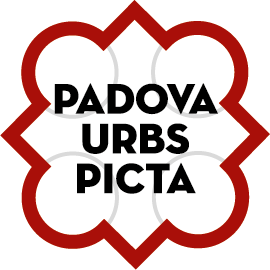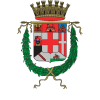Access to broadband, the spread of home banking, digital PA, on-line services, local council apps, digital openness, social PA, public WiFi, IOT and web technologies – all of these are fundamental in the creation of a smart city.
In Padua, the more advanced companies in this sector are joined by the University itself, a prime investor in innovation and research. Another advantage Padua enjoys is its geographical location – right at the centre of North-East Italy, which over the last few years has proved itself to be a highly innovative network that has expanded into a triangular formation whose corners might be identified with Milan, Bologna and the centre of the Veneto.
The public core of technological research and development in Padua is the ‘Galileo’ Parco Scientifico e Tecnologico which is located at 14, Corso Stati Uniti at the heart of the city’s industrial zone. It is involved in technological transfer, industrial design, the development of new materials, the testing and certification of products, and the emergence of new companies. Nowadays, the entire area is called the Galileo District. Alongside it there is also Startcube at 112, Via Croce Rossa, which is affiliated to the Galileo Park and is a veritable incubator of new companies and start-ups.
Another outstanding contribution financed by private capital comes from M31 at 77, Via Tommaseo, which is in many ways an Italian pioneer in nurturing and accelerating development of hi-tech start-ups. It invests in various sectors, from biomedicine to telecommunications, from computer systems to software technology.
Alongside such traditional forms of innovation, recent years have seen the emergence of totally new spaces dedicated to the world of digital technology, the Web and telecommunications. Talent Garden Padova, a private body financed by around 50 local entrepreneurs is located at 30, Via Savelli and is home to around thirty innovative companies. Alongside it is I.Center, an innovative area dedicated to innovation and training in Industry 4.0. And TAG Padova is a co-working venture which is open 24/7.
Another privately financed co-working venture is Paradigma at 19, Viale dell’Industria. This provides a network where companies, start-ups and freelance workers can meet up and each contribute their own added value to the community.
But if you Google ‘co-working Padova’ you will get a number of hits, some of them referring to such well-known bodies as CoWo, in Corso Stati Uniti, or Co+ in Piazza Gasparotti. Others might simply be shared offices used by a number of different people. Thus co-working, too, is making a virtue out of necessity and going through a period of change.
But it would be rather restrictive to limit oneself to a discussion solely of the facilities dedicated to technological innovation or the nurturing of start-ups. For example, in line with the tradition of medical and hospital excellence that has existed within the city since the days of Fabrici d’Acquapendente and Vesalius, there is the Torre della Ricerca within the Città della Speranza. This ‘research tower’ has ten floors providing a total of 17,500 m2 that is used by at least 350 researchers.The tower block is dedicated to paediatric research and is destined to become the biggest centre in Europe for research into childhood diseases. It houses the teaching and research laboratories of the Paediatrics Department at the University of Padua; the Department of Oncological Surgery at the University of Padua; the Penta Foundation and the La Nostra Famiglia IRCCS Medea.
Another outstanding contribution is being made by the IOV [Istituto Oncologico Veneto] in Via Gattamelata, whose standing within the scientific community has grown to such an extent that it is now recognised as being the eighth-most important centre of cancer research in Italy. With more than 700 operations a year, the Institute is one of the leading hospitals in Italy for surgical responses to breast cancer.
At the same level of excellence is the CNR. The National Research Council agency here is divided between Padua and Legnaro, on sites that total 170,000 m2, of which 20,000 are built upon.
A short distance away is Agripolis, the university centre of agricultural research at 16 Viale dell’Università in Legnaro. This is a veritable campus that combines teaching with study and research, and carries out various projects for the Agriculture Department of the Veneto Regional Government.
Again within the same area of Legnaro is the l’Istituto Zooprofilattico delle Venezie. This animal welfare centre is a public health facility that is dedicated to research and prevention in the areas of animal health and wellbeing, food safety and environmental protection.












